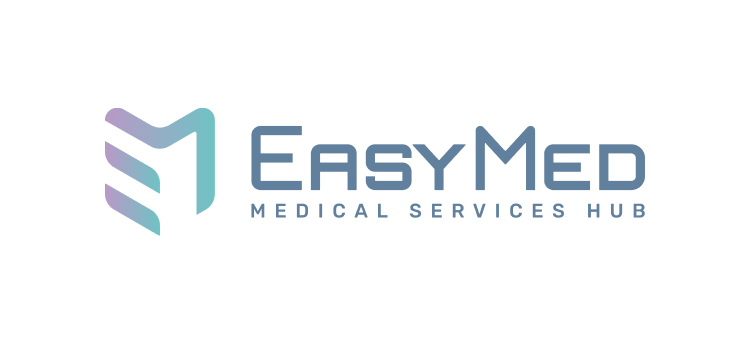
Dental Filling
Dental filling is an emergency procedure that plays an important role in dentistry. It aims to restore the tooth's shape, function and aesthetics after it has been damaged by caries or trauma. Timely filling helps prevent the disease's progression and avoid the need for more complex and expensive interventions, such as crowns or dental implants. Quality treatment in the early stages keeps your teeth healthy and supports overall oral well-being.
Дополнительные процедуры:
- Лабораторный анализ мочи
- Элемент списка #2
- Элемент списка #3
Dental filling with EasyMed
Indications for tooth filling
- Caries: The main indication for filling is tooth decay. This is a common disease in which the tooth's hard tissues are destroyed under the influence of acids formed during the life of bacteria in dental plaque.
- Enamel wear: Over time, teeth's enamel can wear out, leading to the formation of microcracks and chips. Fillings help restore the tooth's structure and function, preventing further damage.
- Cracks and chips: Minor cracks or chips in the teeth that result from trauma, chewing hard foods, or other external factors may also require fillings to prevent them from enlarging and developing more serious problems.
- Old fillings: Over time, old fillings can wear out, loosen, or chip off. Replacement with new fillings is necessary to maintain the health and functionality of the tooth.
- Indentations and imperfections on the surface of the tooth: In some cases, fillings are used to correct small indentations or imperfections on the surface of the tooth that can accumulate food and plaque, contributing to the development of tooth decay.
- Prevention: Sometimes fillings are used prophylactically to protect teeth, especially baby teeth, from the possible development of caries in the recesses and grooves of the chewing surfaces.
Preparation for tooth filling
- Consultation with a dentist: Before filling, a consultation is necessary. During this visit, the doctor assesses the tooth's condition and determines the need and scope of the upcoming procedure.
- Oral hygiene: Teeth should be thoroughly brushed and flossed before a visit to the dentist to minimize bacteria and keep the work area clean for the doctor.
- Temporary abstinence from food and drink: A few hours before the procedure, it is recommended that you abstain from food and drinks, especially coloring ones, to avoid possible discomfort and improve the conditions for treatment.
- Smoking abstinence: Smokers are advised not to smoke for a few hours before the procedure, as it can affect the blood supply to the tissues and healing after the filling.
- Preparation of anamnesis: It is important to inform the dentist about all existing diseases, allergic reactions, and medications taken to prevent possible complications and choose the best method of treatment.
- Determination of pain sensitivity: If you have tooth sensitivity or a fear of dental procedures, it is worth discussing this in advance with your doctor before selecting pain relief and sedation methods.
Important! When making an appointment for a tooth filling, the EasyMed manager will inform you about all the nuances of preparation to guarantee comfort and safety during treatment.
How is the procedure performed
Coming to the clinic for tooth filling begins with registration at the appointment, where the patient draws up the necessary documents. This is followed by a consultation with the dentist, including an examination and discussion of the treatment plan, which takes about 10-15 minutes.
After that, the patient prepares for the procedure: he is asked to rinse his mouth with an antiseptic solution, and if necessary, local anesthesia is administered, which will take another 5-10 minutes. The filling procedure lasts from 20 to 60 minutes, depending on the complexity of the case, including removing damaged areas of the tooth, treating the cavity and placing a filling. Upon completion, the dentist performs grinding and polishing of the filling, and then gives recommendations for the care of the filling and teeth, which will take another 10-15 minutes.
The total time spent in the clinic can vary from 1 to 2 hours, depending on the complexity of the treatment and the time required for anesthesia and registration. To ensure comfortable and effective treatment, the patient is provided with detailed information about all the stages of the procedure and the time that will be spent on it.
Contraindications to the procedure
- Acute period of infectious diseases: For example, influenza, SARS, tuberculosis or HIV in the active phase, as the risk of spreading infection and reduced immune protection can negatively affect the treatment process and healing.
- Severe forms of cardiovascular disease: Including recent heart attacks, strokes, uncontrolled hypertension, which may pose a risk to the patient during dental intervention.
- Allergy to filling materials: If the patient has a known allergy to the components of the filling materials, such as amalgam, composite resins, or others, alternative materials must be selected.
- Severe mental disorders: Which render the patient unable to follow the necessary instructions or react uncontrollably during the procedure.
- Certain blood disorders: Especially those related to clotting disorders, such as hemophilia, which can increase the risk of bleeding during and after the procedure.
- Severe diabetes: Especially with poor blood sugar control, which can slow down the healing process and increase the risk of infectious complications.
Important! When making an appointment for a tooth filling, the EasyMed manager will inform the client about all potential contraindications and discuss individual characteristics to ensure the safety and effectiveness of the treatment.
Safety of the procedure
The tooth filling procedure is considered safe and is widely used in dentistry to restore damaged teeth. It allows you to save the tooth and prevent further problems, such as infections or tooth loss.
Fillings are performed as needed when tooth decay or damage is detected. There are no strict restrictions on the frequency as it depends on the individual condition of the patient’s teeth and oral cavity. Regular dental checkups help determine the need for fillings and other treatments.
When performed correctly, tooth fillings are not considered harmful. Modern materials and treatment methods minimize risks and side effects. However, like any medical intervention, fillings can have potential risks, such as allergic reactions to the filling materials, short-term tooth sensitivity, or, rarely, nerve damage.
To ensure the procedure’s safety, choosing qualified dentists and visiting the dental office regularly for preventive checkups and dental care is important. Proper care and timely treatment of oral diseases will help avoid frequent fillings and keep teeth healthy for many years.
Advantages of contacting EasyMed:
- We provide a quick and convenient appointment for the necessary procedure, helping to avoid long waiting times and reducing the stress associated with finding a clinic.
- EasyMed cooperates only with trusted clinics, guaranteeing a high level of medical care and the quality of procedures.
- EasyMed clients receive a personalized approach and assistance in choosing a dentist, we take into account your personal preferences and medical needs.
- EasyMed provides full information support, advising clients on all issues related to the filling procedure and helping to understand the upcoming steps of treatment.
- From scheduling appointments to receiving medical services and follow-up care, EasyMed accompanies the client every step, providing comfort and confidence.
Want to make an appointment for a review?
Fill in the following details
and we will contact you as soon as possible
Faq
Frequently asked Questions
We provide personalized healthcare services. Our main goal is to provide you with a quick appointment for the necessary medical examination or consultation with a doctor.
There is no need to wait several months: with us you will get to the right specialist in the shortest possible time.
Waiting times depend on the complexity of the procedure and the doctor’s profile. We can make an appointment with some specialists within 24 hours. For complex procedures, the waiting period of which reaches several months, you will be treated with us within 2-3 weeks.
There are a number of procedures (for example, complex types of MRI) that the patient can wait about a year and a half. We can reduce this period to 3 months.
We cooperate with leading specialists in various fields, as well as with top clinics and laboratories throughout Israel and abroad.
Our doctors use the latest treatment protocols and the most advanced technologies. The clinics we work with are equipped with modern equipment that provides the most accurate results.
Our partners are experienced professionals who have earned trust due to their experience, knowledge and professionalism.
We operate in all regions of Israel. Your appointment will be scheduled at the location most convenient for you.
The cost of services depends on the complexity of the procedure and the doctor’s profile. For accurate information and cost calculation, leave your details or call: 033083020
Yes, absolutely. Confidentiality and protection of our clients' personal information is one of our key priorities. We strictly adhere to all legal and ethical standards to ensure the maximum security of your data.
Our specialists will check whether in a particular case a refund from the insurance company is due. If yes, then after completing the procedure, a receipt will be sent to the insurance agent, who, in turn, makes a request to the insurance company to return the amount due to the patient for the procedure completed.



